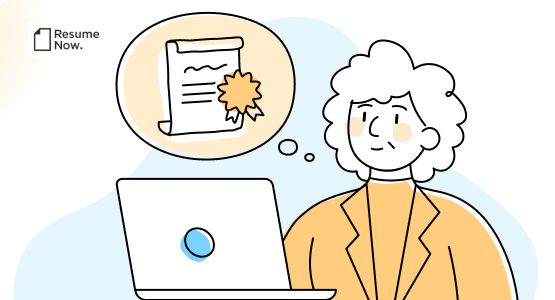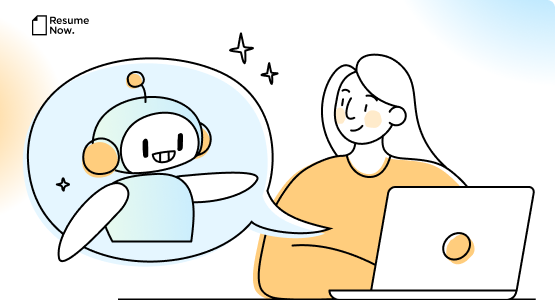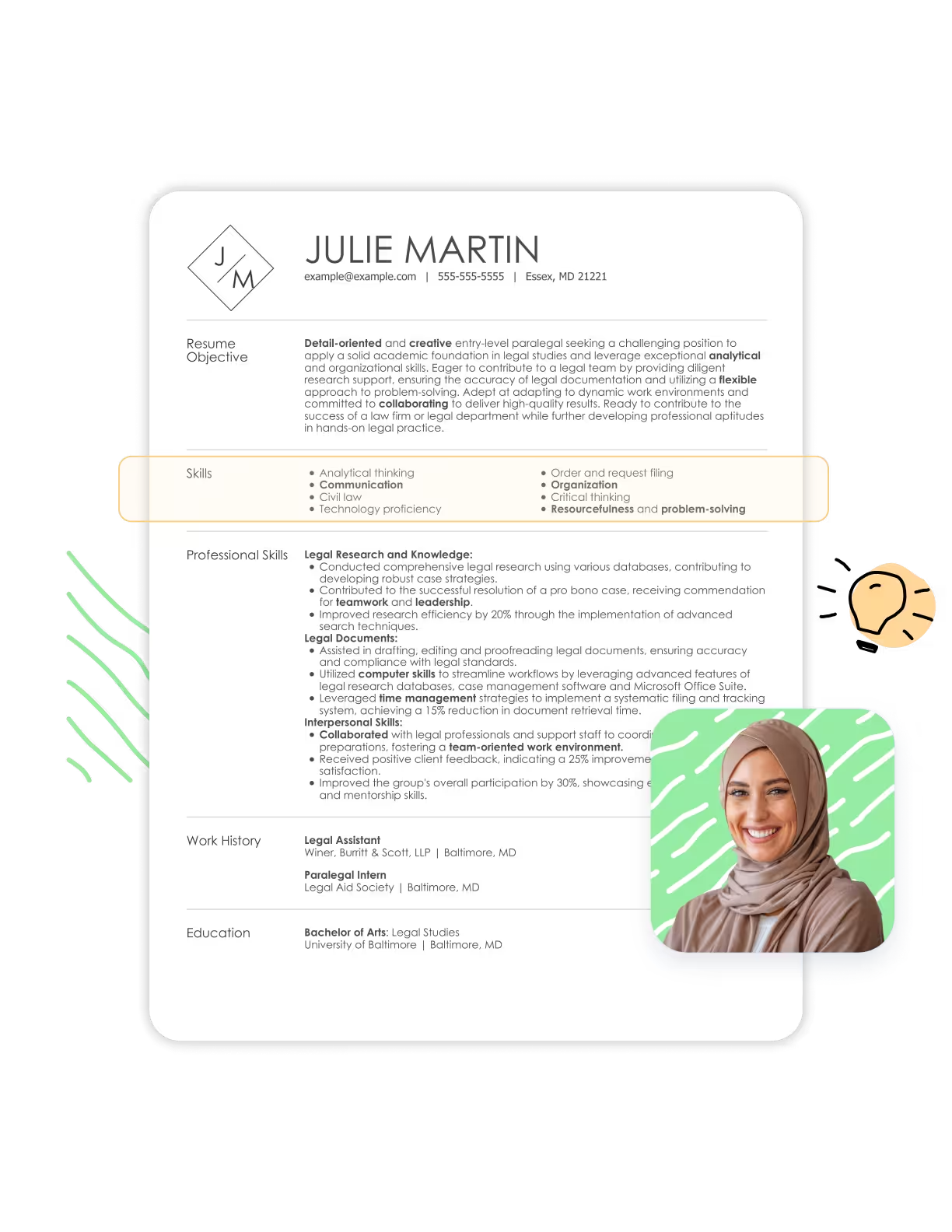Whether you’re a seasoned professional with a wealth of technical skills in your field, or a newcomer to the workforce ready to learn, your resume is going to feature a skills section. And alongside all of your hard-earned industry-specific skills, that skills section should feature plenty of transferable skills.
Not sure how to use transferable skills on your resume? No worries! Our guide will cover that along with:
- What transferable skills are.
- Why transferable skills are important.
- An example resume that demonstrates how to use transferable skills.
- Example transferable skills that you can use on your resume.
- Key takeaways to help you build a strong resume that makes the most of transferable skills.
Not sure where to start with building a resume? Our AI Resume Builder is a great tool for beginners and seasoned pros alike. This tool offers professional formatting help, stylish resume templates and even customizable text suggestions to help you conquer that pesky writer’s block.
What are transferable skills?
Before you dive into writing a skills section that’s rich in transferable skills, you should know what makes a transferable skill different from a regular old resume skill.
You’ve probably heard the term “soft skills” before. As opposed to hard skills, which are technical abilities learned through education, experience and training, soft skills are the subtle abilities and personality traits that you use every day to achieve results at work — whether you’re a CEO or a kindergarten teacher.
Skills like teamwork, attention to detail and flexibility are important no matter the role or experience level. But how do hard and soft skills relate to transferable skills? Easy! Most soft skills are transferable skills.
Transferable skills are abilities that can be applied to any role. A skill like communication can transfer from helping a cashier provide great customer service experiences at a grocery store, to helping that same individual collaborate with co-workers as a graphic designer.
Even though the responsibilities of these two roles are quite different, there are plenty of key skills that can help a worker thrive in both roles. These are the transferable skills that should be prominently displayed on your resume.
Why are transferable skills important?
Now that you know what transferable skills are, you might be wondering why they’re so important. There are a few reasons.
Firstly, transferable skills are usually difficult to teach. Unlike the ability to use a specific software, the ability to work collaboratively is something that you mostly either have or you don’t by the time you’re a working professional. It makes sense that employers would prefer not to worry about trying to teach these broad life skills.
Secondly, every career has to start somewhere. As we mentioned above, a seasoned professional will probably have a ton of technical skills and critical experience to fill their resume. For an entry-level beginner, this is not the case. You may have some skills from your education that are specific to the role, but generally, an entry-level resume must lean heavily on transferable skills to demonstrate the candidate’s value.
As an entry-level software engineer, for example, you may have learned several programming languages in college, but you likely won’t have the robust project experience that an experienced candidate has. Instead, you would want to showcase transferable skills that demonstrate your willingness and ability to learn and grow, like problem-solving, collaboration and resourcefulness.
How to use transferable skills on a resume
If you’re wondering “where do I put transferable skills on my resume?” then I have good news for you! The answer is very simple: Your resume already should have a skills section where you list your key abilities.
This section should be a mix of the hard technical skills you’ve earned and the soft skills that will transfer to any role.
A successful skills section using both specific technical skills and transferable skills might look something like this:
- Written and verbal communication
- Proficiency in Microsoft Office and Google Workspace
- Data analysis
- Organizational skills
- Time management
But this isn’t the only place where transferable skills should appear on your resume. Your resume profile and your work experience sections should both demonstrate your skills as they lay out the story of your career so far. Pepper relevant transferable skills throughout these sections.
Pro tip:Not sure what skills your resume should emphasize? Use the job listing as your roadmap. The desired skills that the employer lists should stand out to you as keywords that you can use to align your resume to their expectations. This will also help you pass through the screening process if the employer uses applicant tracking systems (ATS) to filter for qualified resumes.
Example resume using transferable skills
Let’s look at an example resume that’s full of transferable skills to help visualize how to use these skills successfully on a resume:
This sample resume uses transferable skills in nearly every section. The use of transferable skills helps the candidate appear capable, despite relatively little hard experience as a paralegal.
It’s especially helpful that the tone of this resume emphasizes the candidate’s eagerness to learn. The employer who reads this will understand that this candidate is a beginner and doesn’t have experience in the workplace, but hopefully they will also see how willing and excited she is to learn and improve.
And, most importantly, they’ll see that she has key skills that can’t be easily taught, like communication, analytical skills and flexibility.
Top 10 transferable skills for a resume
Now that you understand what transferable skills are and why they’re such an important tool to make your resume great, let’s look at some transferable skills that you can use right now to show your competence on your resume.
Communication
We’ve already mentioned this skill a few times because it is so very critical. Whether you’re working in a cutting edge tech role or an entry-level customer service role, there’s no getting away from communication. It is the backbone of teamwork and is crucial to both your performance on the job and maintaining positive relationships with co-workers and customers, even in fast-paced or stressful situations.
Organization
Nobody wants to lose precious time helping their employee track down missing paperwork or waiting around for a co-worker to show up to a meeting they’ve forgotten about. Organization helps you stay on top of things and present yourself as a true professional. This is a vital skill for any role, but we recommend giving extra attention to organization in roles with administrative responsibilities.
Flexibility
Work can be a demanding place where each day throws new challenges your way. Flexibility allows you to bend and adapt when challenges arise, instead of snapping. Employers appreciate employees who know how to achieve even under difficult circumstances.
Time management
Looming deadlines can be stressful as they add a lot of pressure to your work day. But a candidate with excellent time management skills is a candidate that employers can trust to use their time wisely, prioritize the important things and complete critical tasks within the expected time frame. Putting time management on your resume shows that you are independent and won’t need constant management to get your work done.
Resourcefulness
While it’s true that there’s no such thing as a stupid question, it can be difficult to get anything done at all when a co-worker asks for help or clarification on every single detail of their assigned task. A resourceful employee is one who is curious about their role and uses their own initiative to find answers for themselves and find novel solutions to problems.
Problem-solving
Speaking of problems, problem-solving is an extremely valued skill in and of itself. In both independent and collaborative environments, an employee who is excited to tackle challenges and really puts their mind to work thinking their way around problems is an indispensable asset.
Teamwork
Teamwork makes the dream work! Collaborative work environments are full of opportunities to grow ideas into something great and pool mental resources to accomplish things that we could never accomplish alone. Working with others can be challenging, though, and teamwork is very hard to teach. That’s why it’s such a valued transferable skill.
Computer skills
Unlike the others on this list, computer skills are fairly teachable. Even if you aren’t good with computers now, you can learn to use common workplace software and improve your proficiency with computers. Modern workplaces often rely on a host of software to get things done, from spreadsheets to video conferencing software. You don’t need to be a programmer to master the use of a few basic computer tools and this knowledge will transfer to almost any workplace.
Creativity
Creativity goes hand in hand with problem-solving as a transferable skill that allows you to use your brain and think your way around challenges. You may think of creativity as a resume skill limited to artistic roles, but creative thinking helps you approach tasks from new and enlightening perspectives.
Leadership
Leadership is an intangible quality that is very hard to teach. Your ability to listen to others, work on a team, be resourceful and use initiative come together to give you the skills needed to lead your co-workers to new heights. Leadership skills are extremely transferable and even apply well to roles that don’t involve actual management or team leadership responsibilities.
Key takeaways
Use transferable skills to fill in experience gaps
Everyone has to start somewhere. Even without a ton of on-the-job experience, transferable skills can help you write a resume that shows off how competent and ready to learn you can be.
Check the job listing for clues
If you aren’t sure which transferable skills to include, the job listing can help you hone in on some keywords that represent the qualifications that the employer is looking for. Focus on aligning your skills with the employer’s expectations.
Make a robust skills section
Most transferable skills are soft skills. Make sure your skills section includes a balance of both hard and soft skills so that you can position yourself as a strong and well-rounded candidate.
Include transferable skills in other sections of your resume
Your skills section isn’t the only place where transferable skills can work for you. Include key transferable skills in your resume profile and work experience section to drive home your capabilities as you narrate the story of your career.
Was this information about How To Use Transferable Skills To Write A Job-winning Resume helpful? Let us know!
Hailey is a career advice writer dedicated to helping job seekers excel in their careers.
More resources

Still in the Game: 9 in 10 Older Workers Are Upskilling to Stay Competitive
The idea that older workers are resistant to change doesn t ho...

The AI Boss Effect: 97% of Workers Have Asked ChatGPT for Advice Instead of Their Manager
Resume Now s latest report explores how AI is replacing manage...

37 Unique Skills to Put on Your Resume
Trying to avoid the skills you see pop up on resumes repeatedl...

Interview-Winning Law Resume Examples and Tips
Build & download your Law resume in a few simple steps. Browse...

Interior Design Resume: Examples, Templates & Tips for 2025
In interior design first impressions are important. Make head...


